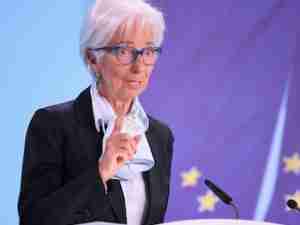A price war by Australia's two supermarket heavyweights is forcing international food giants such as H.J. Heinz Co and Unilever Plc/NV to adapt fast or lose sales as competition heats up in the nation's $109 billion food industry.
Multi-nationals down under are being squeezed as tougher tactics by Australia's supermarket near-duopoly, Woolworths and Coles, relegates suppliers to the weak bargaining position of "price takers," wielding very little influence during negotiations to set commercial terms.
Heinz sales fell 13 percent in the second quarter in Australia, the world's second-most concentrated retail market after neighbouring New Zealand.
Woolworths and Coles, owned by Wesfarmers, command almost 80 percent of sales in the country of nearly 23 million. Metcash and Germany's Aldi are the third and fourth players.
"Coles and Woolworths, as the market leaders, have significant influence when dealing with suppliers and in controlling access to the consumer," said a report by manufacturing industry group the Australian Food and Grocery Council and consultant A.T. Kearney Australia.
"The industry is expected to be significantly less competitive in 2020 than it is today," said the report, entitled "2020: Industry at a crossroads" and written after interviews with 30 manufacturers.
Consumers and politicians aren't happy about the lack of competition.
"It's about supermarket profits. It's about...pushing costs and risks on to manufacturers," said Australian Sen. Kim Carr. "We've got to make sure there are fair and ethical business practices undertaken in this country."
"Intensity"
Foster's, which was just acquired by SABMiller, successfully withheld supply of some of its beer brands from the pair earlier this year when it felt price discounting had gone too far.
"It was through a lens of: 'Are our brands suffering and being damaged by effectively using them to drive foot traffic and...sacrificing them to the benefit of those (supermarket) businesses?' So we had to take those actions," John Pollaers, who stepped down as chief executive at Foster's this month, told Reuters.
Many other manufacturers are scrambling to reinvent themselves, changing their products or packaging, as the powerful supermarket leaders increase their stranglehold, employing tougher negotiating tactics and creating and sell their own brands, known as private labels.
One dollar in every four, or a third of packaged grocery units sold in Australia, is now going to "private label" brands owned by retailers, research by Nielsen found. That is likely to rise 40 percent by 2015, almost catching up to Britain.
"Private label will always increase further the intensity with which we compete," said Sebastian Lazell, chairman of Unilever Australasia, in an interview with Reuters.
"You do, in the end, lose to private label if you don't bring differentiations, strength, novelty, quality and value to the table," he said.
Supermarket leader Woolworths has said it wants to double its offering in private label, which secures the retailer a higher profit margin than other brands.
Manufacturers such as Heinz need to focus on variety, nostalgia, better shelving positioning, innovations and unique ingredients to combat the switch to cheaper "house" brands, Nielsen found.
That is not easy when ingredient prices are rising and the supermarkets control the final point of sale.
"In this environment, the challenge is to keep the innovation pace up. If we don't do it then yes, we run the risk of being clobbered," Unilever's Lazell said.
"Inhospitable"
Heinz executives have described an "inhospitable environment" for suppliers in Australia after a drop in consumer confidence and spending triggered deep discounting and a scramble for market share among major retailers, in turn hitting manu





